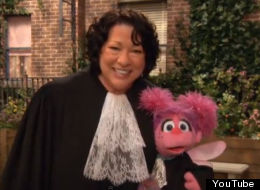"There's no other public official who is required by the nature of their work to completely explain to the public the basis of their decision," she said, when asked about the hotly debated issue by moderator Thane Rosenbaum.
"Every Supreme Court decision is rendered with a majority opinion that goes carefully through the analysis of the case and why the end result was reached. Everyone fully explains their views. Looking at oral argument is not going to give you that explanation. Oral argument is the forum in which the judge plays devil's advocate with lawyers.” “I think the process could be more misleading than helpful,” she added. “It's like reading tea leaves. I think if people analyzed it, it is true that in almost every argument you can find a hint of what every judge would rule. But most justices are actually probing all the arguments."That makes absolutely no sense to me. People may be misled by actually watching oral argument instead of hearing someone else describe it or reading the transcripts? Really?
Meantime, Justice Ginsburg gave a talk at Harvard, which was covered by the Harvard Gazette.
A snippet:
[Dean Martha] Minow inquired about collegiality on the court, which is often deeply split. Ginsburg responded that over the years her husband’s culinary skills have helped foster a friendly atmosphere. He baked birthday cakes for members of the court, she said, and catered their quarterly meetings.
In addition, the justices like to hold regular soirees, said Ginsburg, where they forgo work and “just listen to beautiful music.”
Ginsburg told Harvard Law School Dean Martha Minow that she looks back on her Harvard years with fondness.
But are there times, Minow pressed, when, despite their ritual handshakes before they take the bench, a little animosity breaks through?
Ginsburg said she may occasionally bristle at a “nasty dissent” penned by another justice, but “we are all in this together, and we do revere the institution for which we work.” Still, she said she hoped the court someday will return to the “spirit of bipartisanship which prevailed in the early ’90s.”



